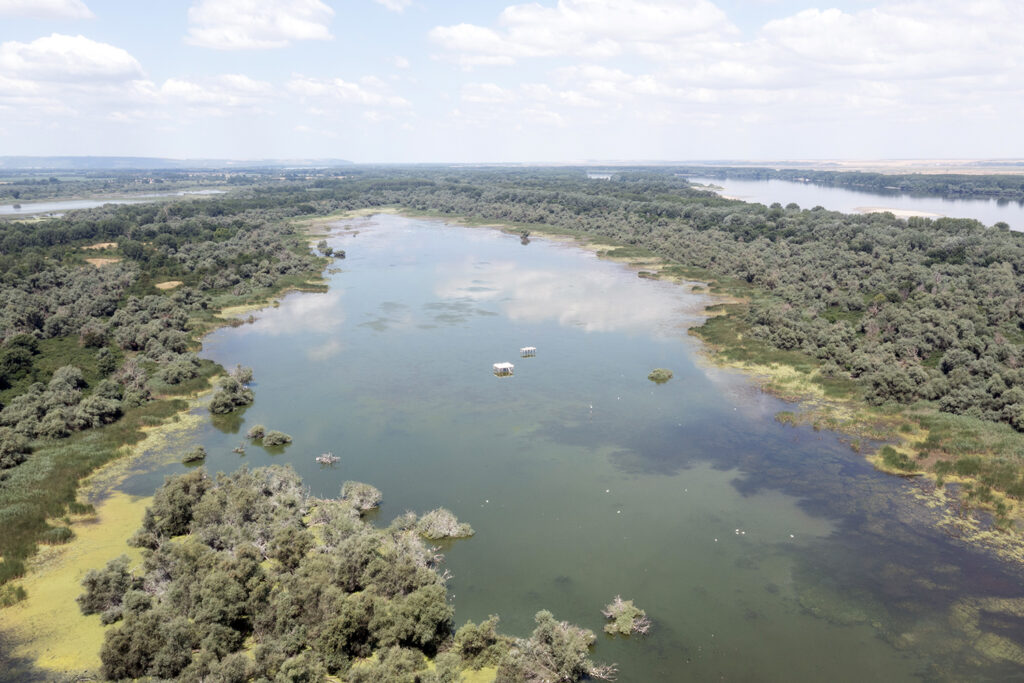The past year proved to be quite dynamic and full of challenges for nesting Dalmatian pelicans in Bulgaria. To successfully raise their chicks, the birds had to overcome numerous difficulties – low water levels in the Danube River and surrounding wetlands, sudden cold spells and heatwaves, as well as attacks from ground predators.
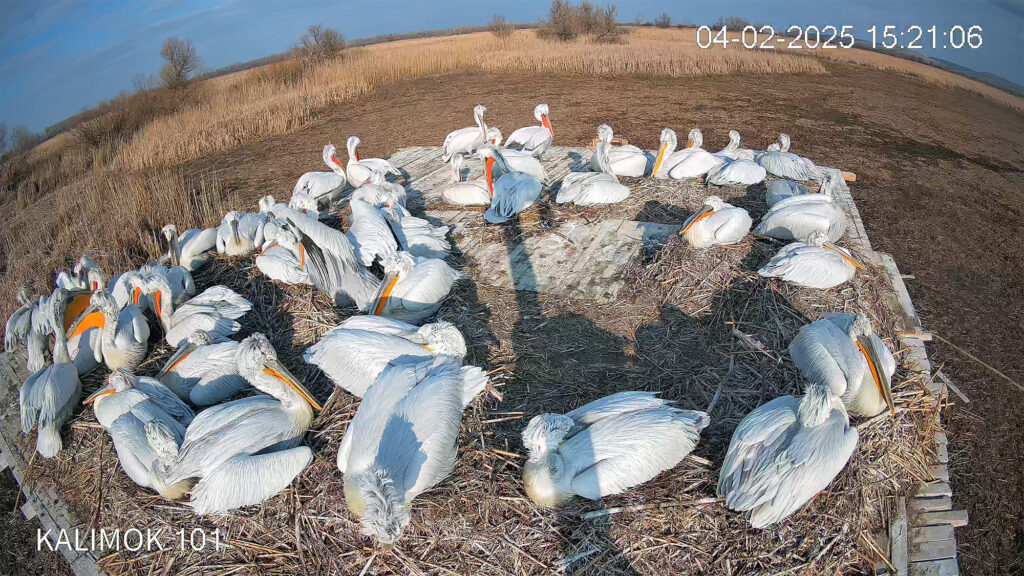
Despite these obstacles, the breeding season was once again successful for the Dalmatian pelican colony formed in April 2021 in the “Kalimok-Brushlen” Protected Area near the town of Tutrakan. The birds occupied two stilt wooden platforms, which had been expanded last autumn by a team of experts and volunteers from the Bulgarian Society for the Protection of Birds (BSPB). Although water flooded the wetland only at the beginning of April, one platform was occupied by 44 pairs and the other by 39 pairs. In total, 83 pairs of Dalmatian pelicans successfully raised 106 chicks. All the chicks fledged by mid-July and are still staying near the platforms and along the sandy islands of the Danube River in the region. For the fourth consecutive year, this is the largest breeding colony of the species in Bulgaria. Its establishment is a remarkable conservation success and another step forward in the protection of this majestic species.
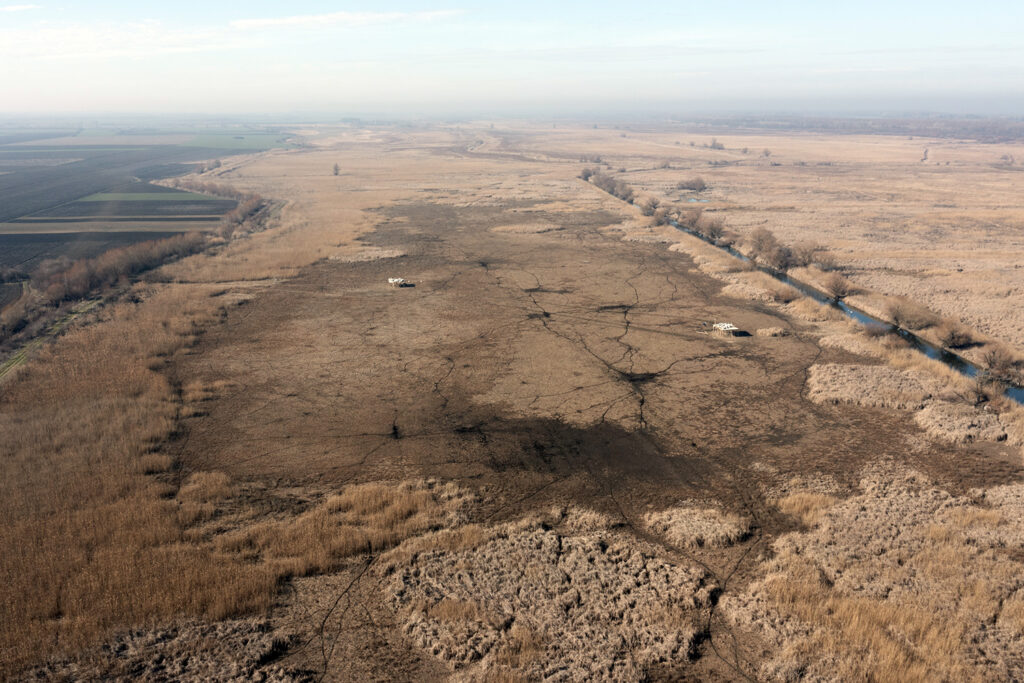
For the tenth consecutive year, Dalmatian pelicans also nested in Persina Nature Park. In 2025, the birds occupied two stilt wooden platforms built for them on Persin Island. Again, the marshes filled with water in early April. The platform in Peschina Marsh was occupied by 12 pairs, which successfully raised 14 chicks, while the platform in Dead Marsh was taken by 23 pairs that raised 29 chicks. All chicks fledged successfully by mid-July and can still be seen along the nearby sandbanks of the Danube River. In total, 35 pairs of Dalmatian pelicans nested in Persina Nature Park in 2025, successfully raising 43 chicks. Interestingly, for another year during the breeding season, the marshes on Persin Island attracted about 200 great white pelicans. Although they did not breed, they used the platforms as resting and roosting spots. Both marshes are part of the “Persina Marshes” Managed Reserve, located on the island and including also the Old Marsh and Dulyova Bara. The monitoring is carried out in collaboration with experts from the Persina Nature Park Directorate.
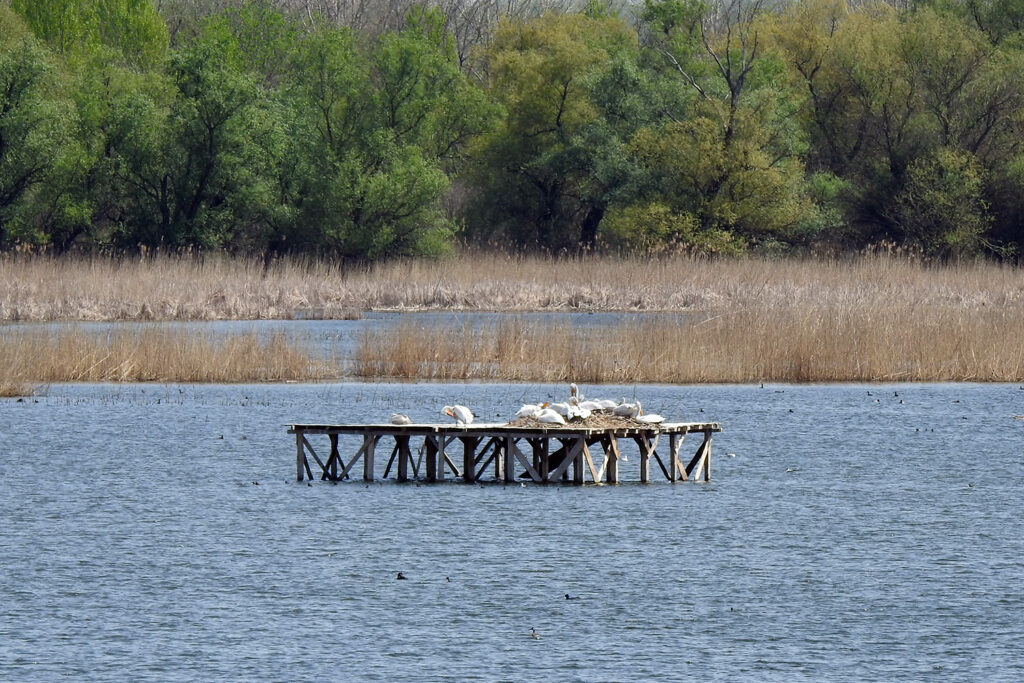
This year, 37 pairs of Dalmatian pelicans nested in Srebarna Lake, but unfortunately, they were not able to raise chicks. The low water levels in the lake allowed jackals to access the nesting platforms and drove away the nesting pelicans.
The breeding season was also unsuccessful for the Dalmatian pelicans that started nesting in January on the platforms built by BSPB in the Natura 2000 site “Mandra-Poda Complex” near the city of Burgas. A month later, the pelicans abandoned their nests for reasons that remain unknown. Similar behavior has been observed at other sites during initial breeding attempts, so we hope the birds will return and successfully breed next year.
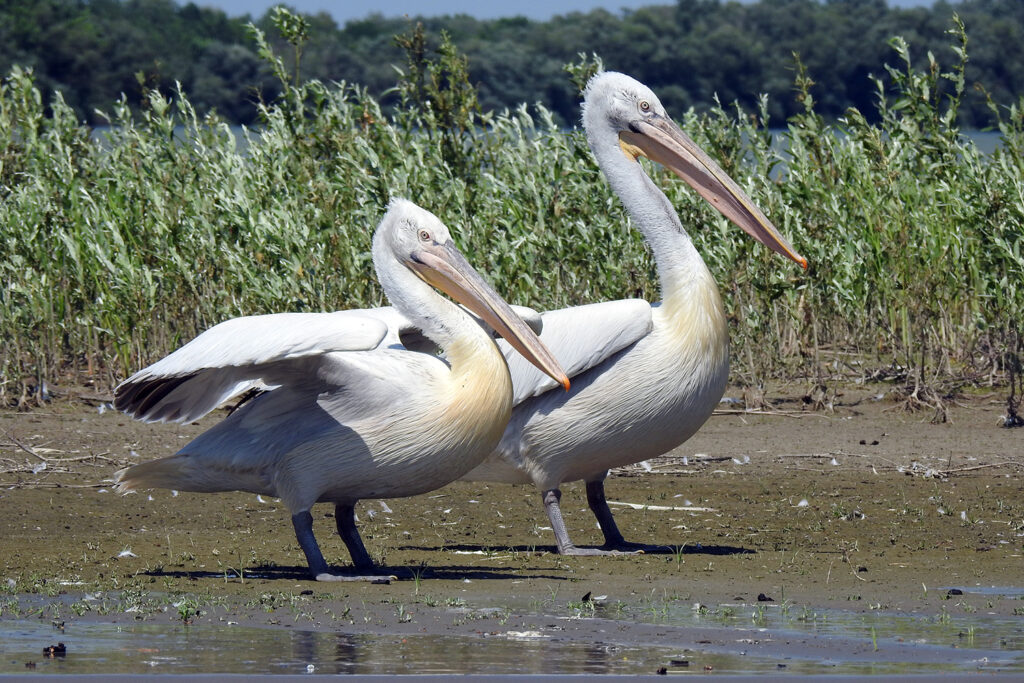
The actions on species conservation are carried out within the framework of the “Pelican Way of LIFE“ initiative (LIFE18/NAT/NL/000716), coordinated by Rewilding Europe and funded by the LIFE Programme of the European Union and Arcadia Foundation, and with the assistance in Bulgaria of the Whitley Fund for Nature.
